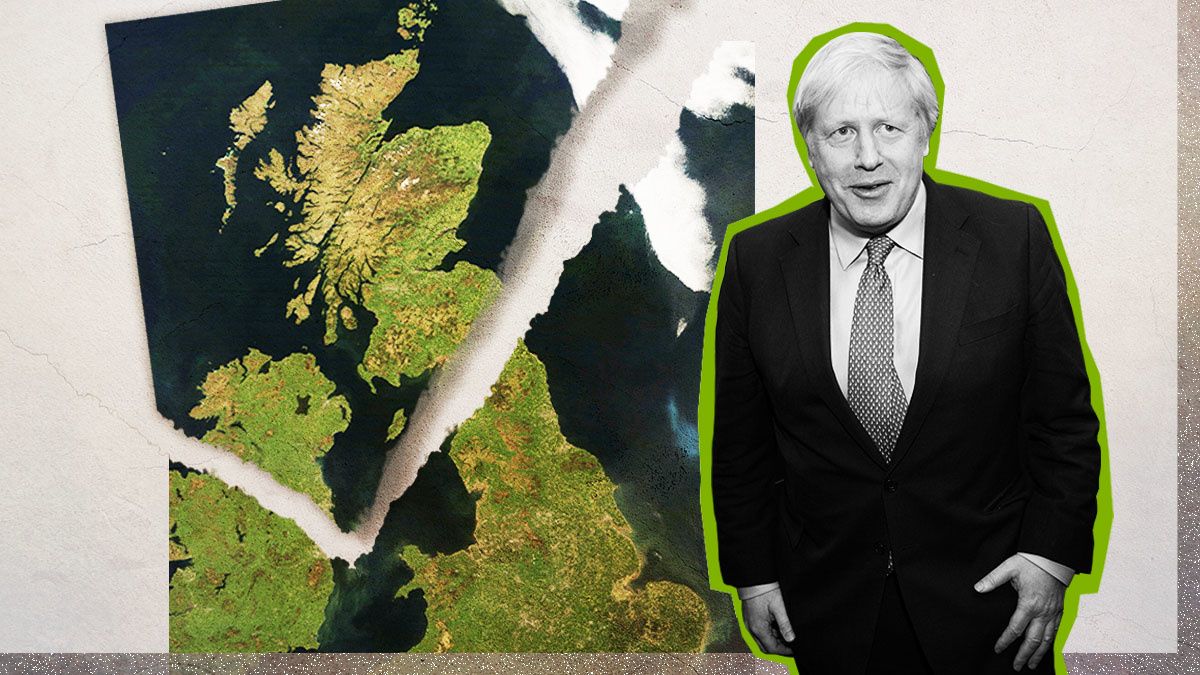Boris Johnson says that his Conservative Party's landslide election victory last week proves that Brexit is "the irrefutable, irresistible, unarguable decision of the British people." Some in Scotland and Northern Ireland disagree. Will historians look back on Johnson's win as the beginning of the end of the United Kingdom?
First, what exactly is the United Kingdom?
The United Kingdom includes England, Scotland, and Wales (together known as "Great Britain"), as well as Northern Ireland.
England has always held the most political and economic power within the union, because more than 80 percent of the UK's 66.4 million people live there.
But Scotland, Northern Ireland and Wales have long agitated for greater autonomy within the UK. A generation ago, the UK parliament agreed to give the Scottish Parliament, the Northern Ireland Assembly, and the National Assembly for Wales substantial authority over local issues.
Scottish Independence
For some, greater autonomy isn't enough. In 2014, Scots voted by just 55% to 45% against independence, but the Brexit vote in 2016 has reignited that debate. At issue, most Scots don't want to leave the European Union – 62% of them voted for Remain in 2016. Faced with an English prime minister dedicated to pulling the UK out of the EU next month, many Scots now see exit from the United Kingdom as a chance to rejoin Europe as an independent nation.
And so Nicola Sturgeon, leader of the Scottish National Party (SNP), has formally called for another independence referendum. Her voice carries extra weight since the SNP won 48 of Scotland's 59 seats in the UK Parliament in last week's elections.
Northern Ireland may also be eyeing the exit
Like Scotland, Northern Ireland rejected Brexit too. In the 2016 referendum, 56% voted Remain. Also like Scotland, a growing number of Northern Irish voters don't want to be dragged out of the EU against their will. Last week, for the first time since the 1921 partition of Ireland, Northern Ireland elected more Irish nationalists (who oppose Brexit) than pro-UK unionists to the UK Parliament.
Questions about Northern Ireland's post-Brexit future wouldn't in fact be about independence as such, but rather about possible unification with the Republic of Ireland, which is an EU member. (Naturally, Ireland would have to agree to this, probably with a referendum of its own.)
Collision Course with Boris Johnson
Neither Scotland nor Northern Ireland can hold binding referendums about their future without approval from the UK Parliament, and Boris Johnson says he won't allow it. After all, Scottish independence alone would cost the UK a third of its territory and punch a significant hole in the world's fifth largest economy. Johnson certainly doesn't want to be the prime minister who let the UK fall apart.
The bottom line: These independence pressures will take time to build. The UK isn't on the verge of breakup, but the specter of imminent Brexit and the deep animosity many Scottish and Irish voters feel toward Boris Johnson has sharply raised the stakes. And just as Brexit created toxic animosities among people across the UK, existential debates about the future of Scotland and Northern Ireland will sow bitter divisions between nationalists and unionists within both of those territories.

















